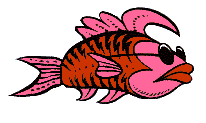
- catfishboy
- Administrator
 Offline
Offline 
- Registered: 8/01/2017
- Posts: 6,868
NCAA reveals updated plan for return of college sports
NCAA reveals updated plan for return of college sports
Nearly two months into social-distancing nationwide effectively reducing the spread of coronavirus, NCAA officials and its task force team are continuing to look at ways intercollegiate athletics can return this fall, specifically college football. Some states have already loosened stay-at-home orders with tiered re-openings to gauge success rate, including Georgia and Florida, and others are expected to follow in the coming weeks.
In a recent wide-ranging feature from 247Sports' National team of reporters, Iowa State Director of Athletics Jamie Pollard expressed confidence college football would be played this season, at least in some conferences.
“My takeaway from that question is: A day is a week, never say never,” Pollard told 247Sports. “Two weeks ago, I would’ve told you realistically I don’t see how we could play a game without fans or I don’t see how we can play games if we don’t bring students back to campuses. What I’ve seen the last two weeks – again, a day is a week – is the reality of how our society needs our economy to reengage. I’m not saying college athletics is our economy. It’s a window into our economy.
“If we’re not finding a way to do something this fall, what does that really say about what our economy in the United States is doing? When you think about it like that, I can see several states throwing everything out the window and Iowa, Nebraska, Wisconsin and Kansas are going to play football because we need it for the economy.’”
The NCAA on Friday released a document entitled “Core Principles of Resocialization of Collegiate Sport”, an early look on how the re-opening of intercollegiate athletics may occur later this year. The NCAA's previously assembled the COVID-19 Advisory Panel — made up of medical, health and epidemiology experts — revealed its nine core principles that will be used as a guide for NCAA professionals that must be followed:
- There must not be directives at the national level that preclude resocialization.
- State and local authorities must have in place a plan for resocialization.
- There should be a plan in place at the university/college level for resocialization of students.
- There must be a plan in place at the university/college level for resocialization of student-athletes within athletics.
- There must be adequate personal protective equipment for athletics health care providers, and there must be sanitizers to manage infection control in all shared athletics space.
- There must be the ability to assess immunity to COVID-19 at a regional and local level. This could include immunity at the college campus, plus a more focused assessment of herd immunity for athletics teams.
- There must be access to reliable, rapid diagnostic testing on any individual who is suspected of having COVID-19 symptoms.
- There must be in place a local surveillance system so that newly identified cases can be identified promptly and isolated, and their close contacts must be managed appropriately.
- There must be clearly identified and transparent risk analyses in place. Such risk analyses consider issues such as economics, education, restoration of society, and medical risk of sport participation, including COVID-19 infection and possible death.
Additionally, three phases featured several 14-day stipulations that preceded the other involving effective social-distancing and proof of no further cases and spread. The primary key in the return of intercollegiate sports is the safety of players and those involved.
SOURCE: Crawford, Brad. "NCAA reveals updated plan for return of college sports." OM Spirit - 247Sports.com, 4 May 2020,
(c) All rights reserved. Content may not be copied, transposed, or used in any manner or form without expressed written permission of user.

 1 of 1
1 of 1